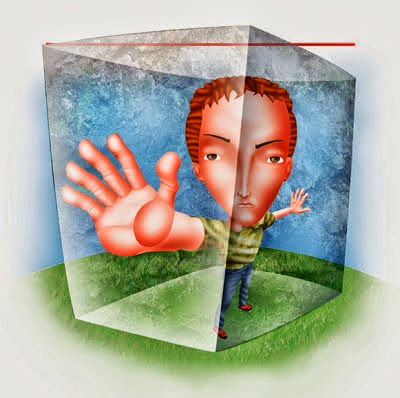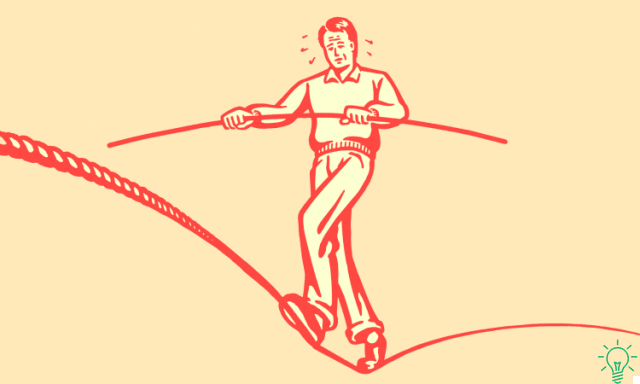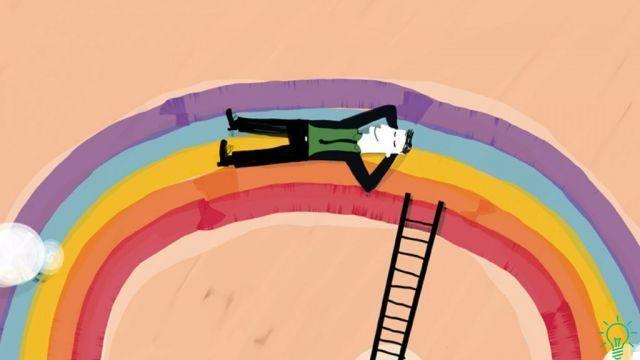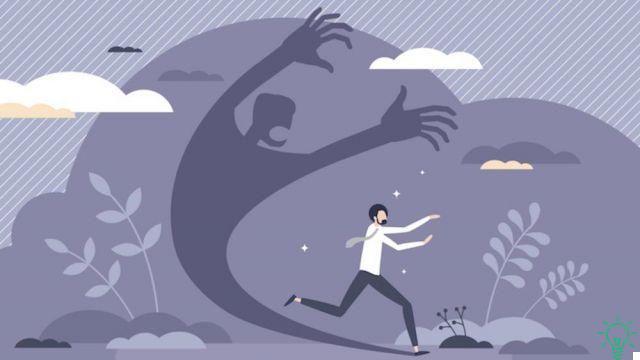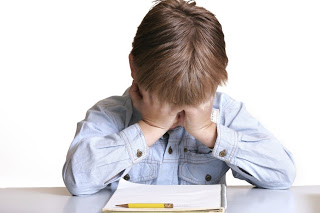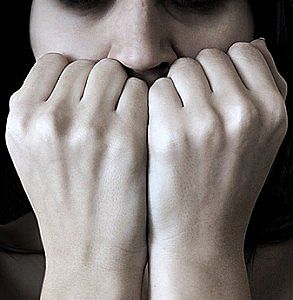 The phrase "I am anxious!" wont be quite common in our society; however, feeling exhausted, stressed or at the limit of our strength are not necessarily symptoms ofgeneralized anxiety, in psychological terms we mean. Especially since in order to diagnose generalized anxiety the symptoms of the same must be observed for a period of more than six months. anxious person. What does it look like? - The person experiences excessive worry characterized by a very high state of expectation. He is always waiting for something negative to happen, and so the person worries about what really happens and what could happen, showing an absolutely inadequate level of tension for the social value that is normally attributed to "worrying" facts. In summary: for the anxious person, anything can be a cause for anxiety, since even the simple fact of having to get up in the morning and having to face the new day generates tension and worries. - There are difficulties in being able to control this state of constant worry . So much so that the person tries to suppress them, these ideas come back and come back in his mind without his being able to eliminate them. - He has at least three of the following symptoms: restlessness, premature fatigue, difficulty concentrating, irritability, muscle tension and sleep. - There is no particularly stressful event to be defined as the main cause ofanxiety. Many times the real root of the worry is quite difficult to identify; even some specialists qualify it as: "a free and fluctuating sense of distress." - This state produces some deterioration in other areas of working life, study and relationships. Evidently, intensity, duration or frequency of the appearance ofanxiety they are disproportionate to the relationship with the feared facts. For these people it is practically impossible to forget their worries and thus be able to devote their attention to the rest of the tasks they have to carry out, for this reason their effectiveness at work or in the study deteriorates rapidly.When the disorder becomes persistent they tend to appear the most different symptoms, some of the most common are: dry mouth, excessive sweating, nausea or diarrhea, trouble swallowing or a feeling of having something in the throat. Sometimes depressive symptoms also alternate. Many people with anxiety are considered "nervous" throughout their lives. Their anxiety usually begins in adolescence or around the age of 20 and the course tends to be chronic. Some specialists say there is also a certain family incidence, although there are no specific studies to confirm this. According to the WHO about 25% of people experience, at least in one moment of their lives, ageneralized anxiety. In North America between 2-8% of individuals suffer from this disorder while in Europe between 1-5% suffer from it.
The phrase "I am anxious!" wont be quite common in our society; however, feeling exhausted, stressed or at the limit of our strength are not necessarily symptoms ofgeneralized anxiety, in psychological terms we mean. Especially since in order to diagnose generalized anxiety the symptoms of the same must be observed for a period of more than six months. anxious person. What does it look like? - The person experiences excessive worry characterized by a very high state of expectation. He is always waiting for something negative to happen, and so the person worries about what really happens and what could happen, showing an absolutely inadequate level of tension for the social value that is normally attributed to "worrying" facts. In summary: for the anxious person, anything can be a cause for anxiety, since even the simple fact of having to get up in the morning and having to face the new day generates tension and worries. - There are difficulties in being able to control this state of constant worry . So much so that the person tries to suppress them, these ideas come back and come back in his mind without his being able to eliminate them. - He has at least three of the following symptoms: restlessness, premature fatigue, difficulty concentrating, irritability, muscle tension and sleep. - There is no particularly stressful event to be defined as the main cause ofanxiety. Many times the real root of the worry is quite difficult to identify; even some specialists qualify it as: "a free and fluctuating sense of distress." - This state produces some deterioration in other areas of working life, study and relationships. Evidently, intensity, duration or frequency of the appearance ofanxiety they are disproportionate to the relationship with the feared facts. For these people it is practically impossible to forget their worries and thus be able to devote their attention to the rest of the tasks they have to carry out, for this reason their effectiveness at work or in the study deteriorates rapidly.When the disorder becomes persistent they tend to appear the most different symptoms, some of the most common are: dry mouth, excessive sweating, nausea or diarrhea, trouble swallowing or a feeling of having something in the throat. Sometimes depressive symptoms also alternate. Many people with anxiety are considered "nervous" throughout their lives. Their anxiety usually begins in adolescence or around the age of 20 and the course tends to be chronic. Some specialists say there is also a certain family incidence, although there are no specific studies to confirm this. According to the WHO about 25% of people experience, at least in one moment of their lives, ageneralized anxiety. In North America between 2-8% of individuals suffer from this disorder while in Europe between 1-5% suffer from it.
 The phrase "I am anxious!" wont be quite common in our society; however, feeling exhausted, stressed or at the limit of our strength are not necessarily symptoms ofgeneralized anxiety, in psychological terms we mean. Especially since in order to diagnose generalized anxiety the symptoms of the same must be observed for a period of more than six months. anxious person. What does it look like? - The person experiences excessive worry characterized by a very high state of expectation. He is always waiting for something negative to happen, and so the person worries about what really happens and what could happen, showing an absolutely inadequate level of tension for the social value that is normally attributed to "worrying" facts. In summary: for the anxious person, anything can be a cause for anxiety, since even the simple fact of having to get up in the morning and having to face the new day generates tension and worries. - There are difficulties in being able to control this state of constant worry . So much so that the person tries to suppress them, these ideas come back and come back in his mind without his being able to eliminate them. - He has at least three of the following symptoms: restlessness, premature fatigue, difficulty concentrating, irritability, muscle tension and sleep. - There is no particularly stressful event to be defined as the main cause ofanxiety. Many times the real root of the worry is quite difficult to identify; even some specialists qualify it as: "a free and fluctuating sense of distress." - This state produces some deterioration in other areas of working life, study and relationships. Evidently, intensity, duration or frequency of the appearance ofanxiety they are disproportionate to the relationship with the feared facts. For these people it is practically impossible to forget their worries and thus be able to devote their attention to the rest of the tasks they have to carry out, for this reason their effectiveness at work or in the study deteriorates rapidly.When the disorder becomes persistent they tend to appear the most different symptoms, some of the most common are: dry mouth, excessive sweating, nausea or diarrhea, trouble swallowing or a feeling of having something in the throat. Sometimes depressive symptoms also alternate. Many people with anxiety are considered "nervous" throughout their lives. Their anxiety usually begins in adolescence or around the age of 20 and the course tends to be chronic. Some specialists say there is also a certain family incidence, although there are no specific studies to confirm this. According to the WHO about 25% of people experience, at least in one moment of their lives, ageneralized anxiety. In North America between 2-8% of individuals suffer from this disorder while in Europe between 1-5% suffer from it.
The phrase "I am anxious!" wont be quite common in our society; however, feeling exhausted, stressed or at the limit of our strength are not necessarily symptoms ofgeneralized anxiety, in psychological terms we mean. Especially since in order to diagnose generalized anxiety the symptoms of the same must be observed for a period of more than six months. anxious person. What does it look like? - The person experiences excessive worry characterized by a very high state of expectation. He is always waiting for something negative to happen, and so the person worries about what really happens and what could happen, showing an absolutely inadequate level of tension for the social value that is normally attributed to "worrying" facts. In summary: for the anxious person, anything can be a cause for anxiety, since even the simple fact of having to get up in the morning and having to face the new day generates tension and worries. - There are difficulties in being able to control this state of constant worry . So much so that the person tries to suppress them, these ideas come back and come back in his mind without his being able to eliminate them. - He has at least three of the following symptoms: restlessness, premature fatigue, difficulty concentrating, irritability, muscle tension and sleep. - There is no particularly stressful event to be defined as the main cause ofanxiety. Many times the real root of the worry is quite difficult to identify; even some specialists qualify it as: "a free and fluctuating sense of distress." - This state produces some deterioration in other areas of working life, study and relationships. Evidently, intensity, duration or frequency of the appearance ofanxiety they are disproportionate to the relationship with the feared facts. For these people it is practically impossible to forget their worries and thus be able to devote their attention to the rest of the tasks they have to carry out, for this reason their effectiveness at work or in the study deteriorates rapidly.When the disorder becomes persistent they tend to appear the most different symptoms, some of the most common are: dry mouth, excessive sweating, nausea or diarrhea, trouble swallowing or a feeling of having something in the throat. Sometimes depressive symptoms also alternate. Many people with anxiety are considered "nervous" throughout their lives. Their anxiety usually begins in adolescence or around the age of 20 and the course tends to be chronic. Some specialists say there is also a certain family incidence, although there are no specific studies to confirm this. According to the WHO about 25% of people experience, at least in one moment of their lives, ageneralized anxiety. In North America between 2-8% of individuals suffer from this disorder while in Europe between 1-5% suffer from it.






